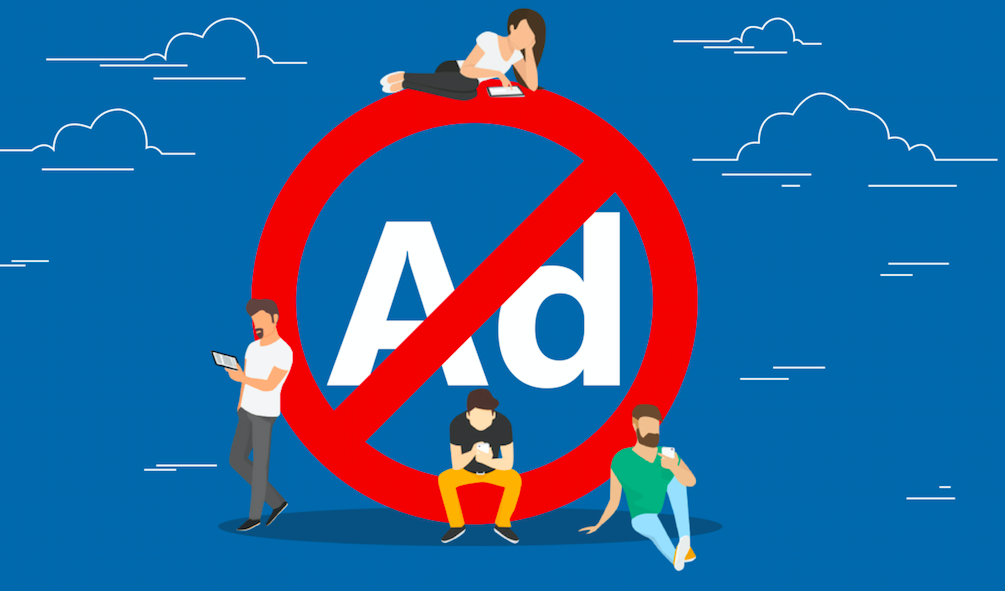Source: Mobile report 2017-2-13 19:34
Global rise of Mobile Ad Blockers – why Network-level ad Blocking is a threat to Net-Neutrality
The global rise of Mobile Ad Blockers – why Network-level ad Blocking is a threat to Net-Neutrality?
Mobile Ad blocking software has gained a lot of popularity among the smartphone users around the World. Hence, it has become a huge problem for mobile marketers and advertisers. However, network level ad blocking is a fairly new addition to the problem.
Ad blocking apps have been available in mobile app stores for quite some time but the usage of these apps have increased significantly in the past couple of years. According to the latest PageFair report, mobile ad blocking growth rate is 90% and approximately 380 million people globally use ad blocker extensions on their mobile devices.
Ad blocking on mobile device is undoubtedly increasing year over year. To add to the miseries, Apple surprised advertisers by launching Safari mobile browser that supports ad blocking. With this new update, Apple actually barred ad publishers’ access to millions of iPhone users worldwide.
The leading market analyst company, Strategy Analytics said that while network-level ad blockers may be providing uninterrupted content to the consumer by protecting them from annoying ads, it substantially alters the advertising market. Ad publishers are likely to suffer the most because the move.
Strategy Analytics’ report also believes that mobile network providers should allow the consumers to decide what they want to watch.

Epidemic of ad blockers
The rise of Mobile ad blockers has grown to become an epidemic in emerging markets, where people primarily use the Internet on their mobile devices. Since people in Western markets are more reliant on smartphones to access the Internet, the use of mobile ad blocking is likely to rise more in the coming years.
Ad blocker has become a huge hit among consumers around the World. For this reason, some mobile network providers are also considering to implement a network-level block on ads to appeal to patrons, who are annoyed of interruptive marketing.
Why is Ad blocking so controversial?
The introduction of ad blocking technology has started a huge war between the network providers and Ad publishers. The technology can actually eliminate the income of businesses that spend huge amount of money on mobile advertising.
Many big Internet brands, like Facebook and Google, depend greatly on advertising to fund their huge empires. Majority of websites on the Internet exist because of online advertising. Numerous websites, from small blogs to corporate giants, rely on advertising revenues to finance themselves.
The advent of ad blocking technology has divided the digital world. Supporters believe that it allows users to get better access to content without invasive ads. On the other hand, critics, mainly companies that depend on advertising for revenues, argue that ad blocking violates the agreement that internet users agree to before viewing any online content.
Why Network-Level Ad Blocking is a Lose-Lose Situation?
Ad Blocking is not an internet-friendly solution that will last in the long run. It discourages ad publishers from creating accessible content. However, there are some flashy and annoying ad formats that truly deserve to get blocked, blocking all ads is unfair. Some parameters should be met for Ads to be acceptable.
Network-level ad blocking has only one winner – the service provider, while there are two losers – advertisers and publishers. In order to get their ads through, ad providers need to pay the telecom companies. This move significantly restricts the reach of ad publishers, making this narrow space even narrower.
Many publishers have already identified and addressed the reasons why ads blocker is used. Most apps offer both free and paid versions, so internet users, who strictly do not want ads to appear on their screen can purchase the ad-free version of the App. But blocking purely eats up the revenue of the ad publisher.
The advertisers will pay the telecom operators to get their ads through ad blockers; therefore the customer base will become smaller and costly. In this competitive marketing space, media agencies will have to really make informed decision before including or excluding a particular service provider in their online campaigns.
No benefit for consumers
Whereas ad blocking may have temporary benefits for consumers, both consumer and ad publisher will have to suffer in the long run. According to The Wall Street Journal report, in 2015 alone, ad publishers lost 24 billion dollars because of ad blocking software.
It can seem like a very good move for customers but really, they don’t have a choice or opinion here. The only advantage goes to the service provider.
Conclusion
Currently, we are witnessing a remarkable change in the online advertising industry. The online ad publishers and advertisers that depend on mobile ads for revenue are in trouble because ad blocking has reduced the impact of online ads. It is fair to say that their wounds are mostly self-inflicted. People resorted to Ad blocking tools because of the poor experience caused by online ads. Only advertisers can save their industry by providing best online experience to users in the future. If advertisers ensure that they’ll only show unobtrusive ads, studies show that there many people that are willing to watch them. Their strategies must be customer behavior responsive. It’s high time for the advertising industry to realize the importance of making ads that create value for the customers.